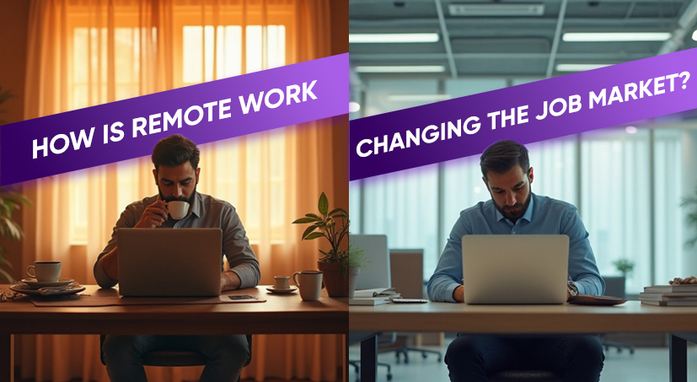
Pros and cons of the new trend.
Just a few years ago, remote work seemed like a temporary solution. Today, it has become a full-fledged work format, reshaping the job market, corporate culture, and team management.
The benefits of remote work may seem obvious: companies save on office expenses, and employees gain more freedom. However, along with new opportunities come new challenges.
Cons of remote work
Remote work offers flexibility but requires discipline. Without face-to-face interaction, building trust becomes more difficult. Companies try to compensate for this with online meetings and virtual team-building activities, but real-life interaction remains irreplaceable.
Cybersecurity is another major concern. Working outside the office increases the risk of data breaches. Companies implement VPNs, two-factor authentication, and employee training in digital security, but remote work demands constant vigilance.
Another crucial aspect is maintaining boundaries between work and personal life. Flexibility is a plus, but without clear rules, it can turn a home into an “office with no breaks”. Companies set fixed communication hours and limit work calls in the evening, but still much depends on employees themselves. Managing time effectively has become a key skill in today’s reality. By the way, we have already covered this topic in one of our previous articles.
Pros of remote work
Companies can hire employees worldwide, and professionals can work from anywhere. This is especially true for IT, marketing, and creative industries.
The remote format reduces costs for office space, utilities, and transportation. These savings can be redirected toward employee development and improving working conditions.
Flexibility boosts motivation. According to research, 98% of employees want to work remotely at least partially. The ability to choose a convenient schedule reduces stress and increases productivity.
Statistics
Employers have different views on remote and hybrid work, but this format is gradually becoming the standard in many industries. According to Forbes Advisor India, 12.7% of employees work remotely, while 28.2% follow a hybrid model.
Digital tools are taking the lead. Companies are actively adopting cloud technologies, collaboration platforms, and cybersecurity systems. Virtual offices and even the metaverse are becoming real tools for interaction.
Work performance is now measured by results rather than hours spent in the office. The focus is on completed tasks rather than a strict nine-to-six schedule.
What’s next?
Remote work has changed the game. For some, it means freedom and productivity; for others, it brings challenges in communication and team cohesion. Some companies embrace hybrid models, while others return to traditional office settings.
Which option is better? There is no universal answer. It all depends on your team, industry, and business goals. Weigh the pros and cons and choose the solution that works best for you!












